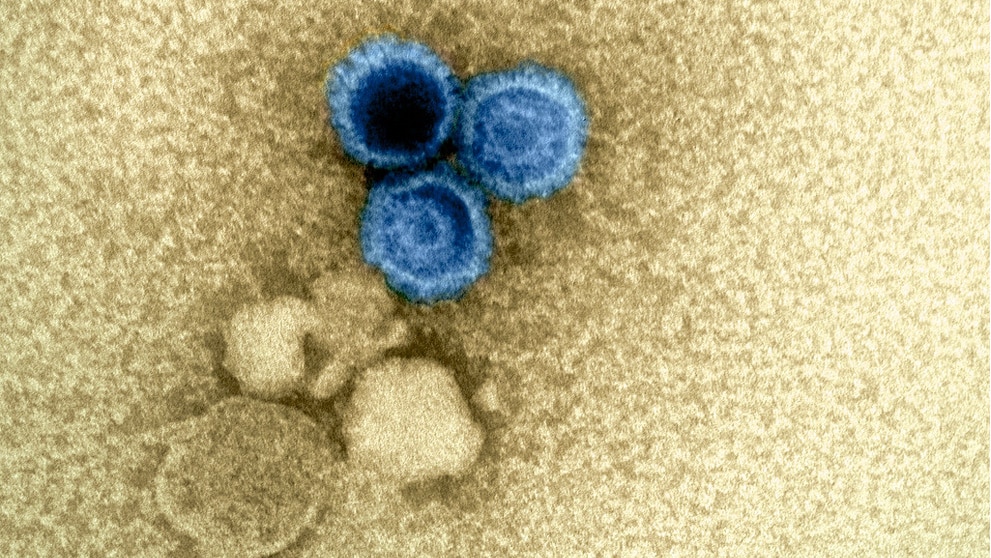One of the most frequent questions I am asked is “How do I know my EBV is reactivating?” and so I decided it is time to share with you how to make sense of this often confusing and overwhelming aspect of EBV.
I will walk you through the behind the scenes of EBV reactivation also called lysing and how it compares to the latent phase (between reactivations) and then I will teach you the 5 ways to assess if you are reactivating. I will also discuss pros and cons of testing to assess your reactivation status.
Let’s start with a short review of the difference between two phases of your EBV: lysing and latent.
EBV: Lysing and Latent
The lysing phase (you feel like you’ve been hit by a track) – is the acute phase. The virus is shedding from your infected cells as they burst open (lyse) after it has been replicating itself and growing, and spilling into the bloodstream. This is the worst of the worst; this is when you tank and are bed-ridden. This is when a short walk outside is not even an option for many. This is when your Early Antigen IgG antibody will show up positive.
The latent phase – between reactivations. The acute phase eventually tones down and you go back to your EBV baseline.. At this time perhaps you can take a 1 min walk, but that’s it for the day. This is where your Early Antigen IgG antibody will show normal. While the latent phase is more moderate, the virus actually relies on this phase more than the lysing phase to grow and expand in the infected body. In other words, the longer you wait to work on EBV therapeutics, the more damage continues to be done. The fact that the virus relies so heavily on the latent phase was one of the biggest surprises for me personally. This means time is not on our side and the sooner you work on your anti-EBV protocol the better
Timeline of each phase
It depends on a person and how severe the infection is and also on triggering circumstances that will reactivate the virus. It can take days, weeks…it depends. Some women fluctuate between these two phases along with menstrual cycles.
Understanding your EBV Baseline
Let me explain the EBV baseline: it is not like the baseline of a person without EBV. E.g., before EBV you did marathons. Now, you can perhaps walk for 3 minutes on a good day. But when you crash (lysing), you are simply bed-ridden. If you push yourself for a 1-minute walk, you may have to spend the next few days in bed resting. So that is your EBV baseline. Everyone who has chronic EBV learns very fast the hard way what their EBV baseline is: how much or how little of particular physical or mental activities you can handle without crashing. This makes for a tough life – budgeting your energy reserves to see a friend, do one chore, or cook a meal. Often picking just one per day. That’s it.
If you have reactivated a few times before, you probably already know all that.

Signs of EBV Reactivation
But how do you know for sure? How do you know when your EBV is reactivating?
- Stress: First of all, has there been a particularly stressful event recently? Physical, physiological, emotional, perceived stress? Getting married or divorced, losing a loved one, moving, buying or selling a house, a new job, many life changes in a short time? Promotions? Even great changes are taxing, which you may not realize. There is also an environmental toxin stress on the body – EBV seems to thrive on that. This includes heavy metals, wi-fi technology and mold exposure. I can tell you without a doubt that most people know exactly when/why they got very sick when they felt like they were hit by that proverbial truck.
- You can do testing. However, you have to do it right away, right at the time you feel the worst, so you can catch Early Antigen – that is what you want to test. If you wait a few weeks, you can miss it as it will normalize when you enter the latent phase. Also, you need to know if you are producing enough immunoglobulins IgG in order to ensure your lab results are not false negative. Any doctor can add this test to your blood work. If your immunoglobulins are below normal range, your doctor can help you recalculate what your EA IgG really means. Still, testing is not always black and white and can add to confusion, and it is really challenging to get out of bed to get the lab drawn when you are the sickest during your EBV reactivation.
- Emotional changes: Notice changes in your emotions. Granted, many people develop depression purely because for years they have not been able to find a doctor who tests, diagnoses and treats EBV properly and as a result, they can become circumstantially depressed and demoralized. And, if you have EBV and rely on social media, support groups and google to learn about EBV, you can develop legitimate anxiety about the future of your health and your life – especially since EBV can trigger autoimmunity and can be oncogenic. With that, EBV itself can literally change your personality and induce anxiety attacks and depression. It is common to have panic and anxiety while driving or on the plane. It is common for people who do not have depressive personalities to develop depression. I have heard people tell me they had to pull over as an EBV-induced anxiety started while they were driving to prevent a car accident.
- Mental deterioration: Does your mind feel thick, clouded, and do you feel you have brain fog, cannot complete thoughts, struggle completing job related tasks? …Severe incapacitating brain fog is a flagship of EBV. people feel they are suffering from cognitive decline. EBV creates massive levels of oxidative stress/free radicals. This affects your brain. Cognition may be affected in the latent phase of EBV, and in that case, it will worsen during reactivation.
- Physical challenges: Most people learn soon enough what their physical symptoms of EBV reactivation are, whether it is a particular symptom or pain point or whether it is a worsening of current symptoms or pain points. There is literally a laundry list of probably hundreds of possible symptoms and pain points, and these will depend on a person, but here are some major ones you want to be aware of.
- Lymph nodes; throat, hoarse throat
- Insomnia
- Energy going down the drain: you can barely walk from bed to the kitchen and back; then you are spent for the night; the fatigue is laden, very hard to explain. You feel like you weigh a ton and are sinking in molasses
- General achiness, like the worst flu, muscle aches, bone aches, fibromyalgia like
- There may be very specific parts of your body that start hurting mysteriously
- Headaches, skin rashes, impaired gut function, vertigo or ataxia, tinnitus…
- Lots of other symptoms
- More symptoms here







Leave A Comment